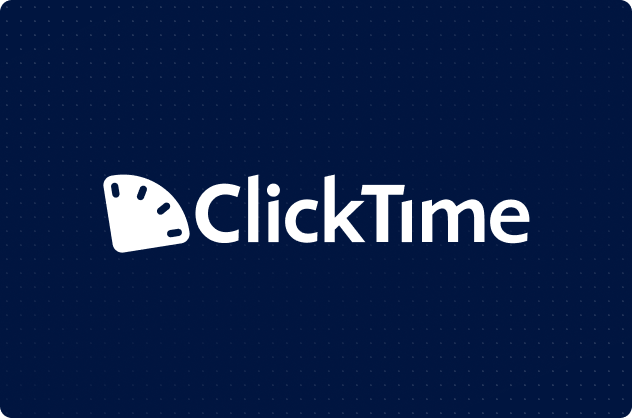Delivering projects on time.
Exceeding client expectations with creativity and insight.
Consistently forming accurate project estimates.
Retaining key staff members.
These are the ingredients to your firm's most valuable yet fragile business asset: your reputation.
Reputations are built with time; they require consistent delivery of projects that delight the client on-time and on-budget. Staff time is a crucial element in this equation - after all, a professional services firm's primary commodity is time itself! The key ingredient to maintaining a good reputation is operational excellence, fueled by time tracking.

The Trap
"As a business owner (and someone whose past has been plagued by clocking hours), one principle is very near and dear to my heart: an aversion to timesheets."
A cross-section of agencies and professional services firms argue that relying on gut instincts and intuition is sufficient, even superior, to time tracking for managing employee and client relationships. Why?
"It Threatens Our Culture"
Empathetic leaders may believe that formalizing a process of accountability will squelch their creative teams: they expect to walk in one day to find their once-vibrant and passionate staff wilted like daisies in a pot if they touch a timesheet.
Well-meaning leaders may forget that tracking time actually builds trust between staff and clients by holding leadership itself accountable for firm operations. In fact, timesheets are the ultimate trust-building tool. They equip a staff member to show that he or she is overburdened. They reveal faulty project plans that are costing a client more than they should or taking time away from higher-priority work. By correcting these issues before they arise, the firm protects its reputation as it continues to please staff and clients.
"We Don't Bill by the Hour"
Fixed-fee or value-based pricing models are oft-cited excuses to eliminate timesheets. Firms concerned about delivering excellent work argue that reducing billing to "the number of hours we spent" leads to unsavory business practices: inflated hours, dishonest employees, and trading down talent.
These leaders mistakenly believe that the only reason to track time is to inform billing. They overlook the fact that no matter their pricing model, they have no path to incremental improvement nor an ability to proactively manage client expectations on project timelines without a baseline for historical time and budgets.
"It's a Waste of Time"
Timesheets are an investment in the process to build a reputation for quality. Yes, staff must record the ways they spent their time. But equipping managers to adjust according to a monthly plan eliminates hours of accidentally aimless time.
And with seamless integration to other systems and the time-saving features of so many timesheet programs today, the administrative burden on staff is lower than ever before.

How does Time Tracking Improve Your Reputation?
Time tracking unlocks benefits that transcend fears of cultural challenges or administrative burden.
- Delivering projects on time: Keeping your word is table stakes for a great reputation. A great project manager forms bulletproof project plans. Yet a plan is only as valuable as an organization's ability to follow it. Daily check-ins may guide focus, but managers require a real-time measure of actual hours spent to ensure timeliness.
- Exceeding client expectations with creativity and insight: As managers adjust project plans with appropriate visibility, the avenue of managing above the plan opens to them. With gains in efficiency come wiggle room to present clients with alternatives, extras, or exceptionally-researched work.
- Forming accurate estimates consistently: Most relationships are defined, to one degree or another, by the first few interactions. The chance to establish your firm's reputation by providing clear and sufficient quotes to a client up-front comes once. Historical data on similar projects, costs, and staff required will be invaluable to perform as expected.
- Retaining key staff members: Through self-reflection based on fact rather than feeling, organizations can provide the right growth opportunities and prevent overburdened staff. Engaged employees stick around. Thus clients continue to receive the consistent experience they expect, project deadlines remain stable with predictable staff hours, and the firm's reputation strengthens as staff nurture long-term client relationships

Embrace Time Tracking
Imagine a firm that navigates a complex competitive environment intelligently to deliver excellent client work while maintaining a satisfied and healthy workforce: its reputation precedes it in every bid, and leadership discovers the joy of operational excellence. Too good to be true? Read how COPE Health Solutions Improved Staffing and Employee Efficiency.
Time tracking is more than data collection. It is a catalyst for transformation—a gateway to the nirvana of streamlined operations, unparalleled client satisfaction, and a durable reputation for quality. While sentimental claims about protecting culture by eliminating timesheets can be alluring, time tracking is the surest way to build and protect your most valuable asset: your reputation.





